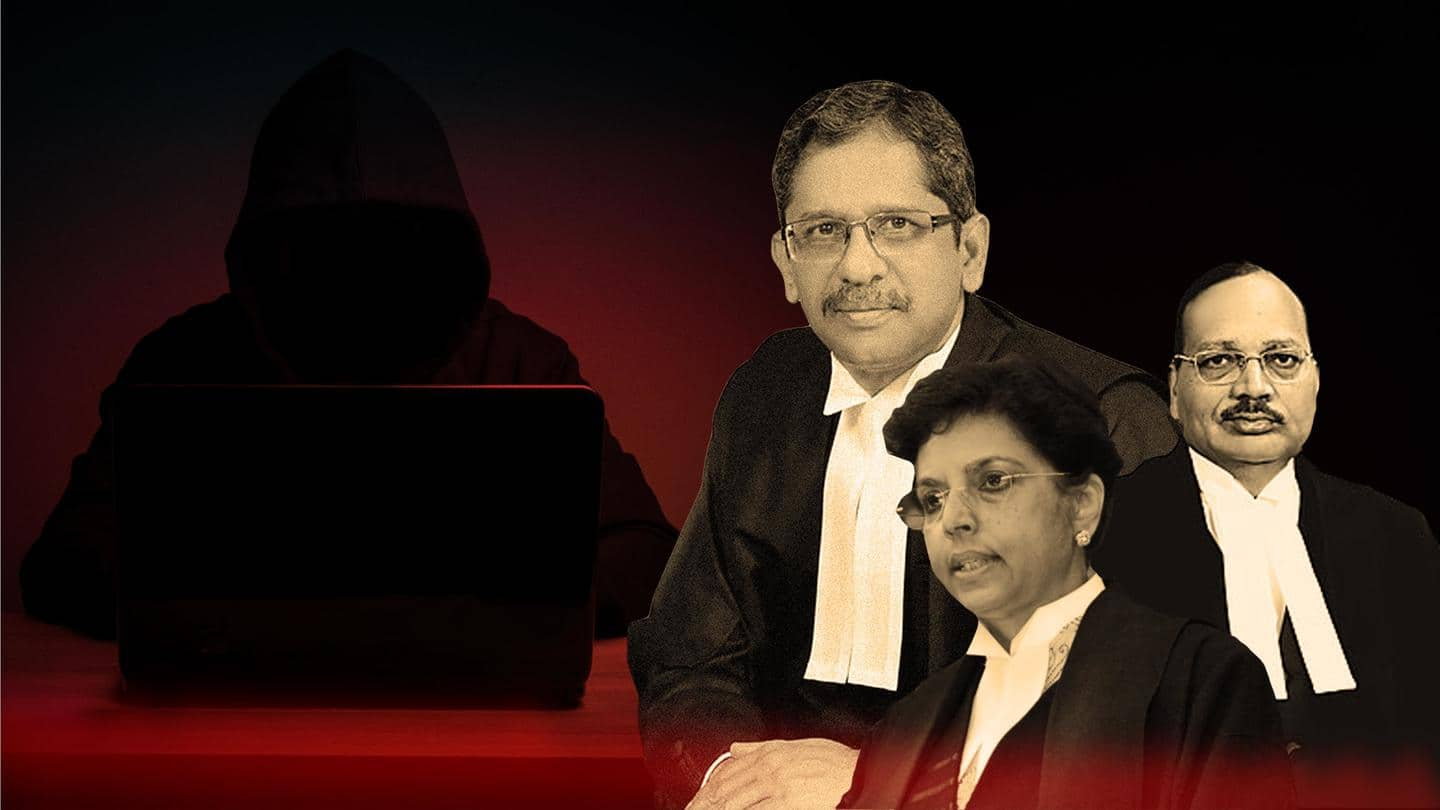
Centre didn't cooperate in Pegasus spyware probe, observes SC bench
What's the story
The Supreme Court on Thursday adjourned the hearing of the highly contentious Pegasus spyware case for four weeks after reviewing the probe committee's report.
According to the bench comprising Chief Justice of India NV Ramana, Justice Surya Kant, and Justice Hima Kohli, the "Government of India did not cooperate with the Committee" and declined to explicitly say whether the spyware was acquired or not.
Context
Why does this story matter?
The probe ordered by SC is looking into whether the government used the Pegasus spyware to snoop on prominent persons.
The SC's observations in the case had upset the central government as the latter opposed a judicial debate on the matter, citing national security.
However, the court had maintained that the Centre cannot "get a free pass every time" citing national security.
Report
'Malware found in 5 phones can't be attribute to Pegasus'
According to Live Law, the technical committee tested 29 phones for alleged spyware and discovered some malware on five of them.
However, the committee stated that it was inconclusive if it was attributable to Pegasus.
Meanwhile, the SC announced that it would consider making the redacted version of the report public following a request from members who had turned in their phones.
Details
Only a part of report will be made public: SC
Notably, the report has been submitted in three parts including two parts submitted by the technical committee and a report by a retired SC judge Justice RV Raveendran, who was overseeing the probe.
Meanwhile, the bench the third part of the report by Justice Raveendran on recommendations will be made public on SC website.
Probe
What prompted SC to order probe?
In October of last year, the Supreme Court authorized an independent investigation into the Pegasus spying incident, which involved claims of broad government eavesdropping.
The Centre was also chastised by the court for bringing up the national security argument.
According to an international consortium, Pegasus was used to monitor over 300 confirmed Indian cellphones, including Congress leader Rahul Gandhi's.
Information
Proceedings started after multiple petitions
The petitioners included advocate ML Sharma, MP John Brittas, Hindu Group Director N Ram, Asianet founder Sashi Kumar, the Editors Guild of India, and journalists Rupesh Kumar Singh, Ipsa Shatakshi, Paranjoy Guha Thakurta, SNM Abidi, and Prem Shankar Jha.
Surveillance
What triggered the controversy?
Military-grade spyware called Pegasus was created by the Israeli company NSO Group and is only accessible to verified government clients.
In 2019, reports that it was being used by several countries to track people made the headlines.
300 Indian people were among the identities of 50,000 prospective monitoring targets that were made public by a multinational coalition of media outlets in July.